Header start
- Home
- News Index
-
News
News
30th Keio Medical Science Prize: Award Ceremony and Commemorative Lectures Held
November 25, 2025
The Keio Medical Science Prize is a core initiative of the Keio University Medical Science Fund, established in 1996. To date, 13 recipients of the prize have later received the Nobel Prize—most recently, Dr. Shimon Sakaguchi of the University of Osaka, who was awarded the 2025 Nobel Prize in Physiology or Medicine and the 13th Keio Medical Science Prize in 2008. The prize has earned international recognition for its role in honoring world-leading research.
The 30th Keio Medical Science Prize Award Ceremony and Commemorative Lectures took place on November 4, 2025, at the Kitasato Hall on Shinanomachi Campus. This year's prize was awarded to Dr. Clifford Paul Brangwynne, June K. Wu '92 Professor of Chemical and Biological Engineering at Princeton University, for his research on the "Discovery of Liquid–Liquid Phase Separation in Cells," and to Dr. Akiko Iwasaki, Sterling Professor of Immunobiology and Molecular, Cellular and Developmental Biology at Yale School of Medicine, for her work on "Advancing Understanding of Human Immunity to COVID-19."
The ceremony opened with a performance by the Keio University Wagner Society Orchestra, welcoming attendees to the venue. The proceedings were moderated by Project Professor Oltea Sampetrean of Keio University's Bio2Q. The program began with a report from Professor Toshiro Sato, Chair of the Keio Medical Science Prize Selection Committee and faculty member at the School of Medicine. He outlined the selection process for this year's award, which began at the end of the previous year. In January, recommendations were sought from thousands of researchers and institutional leaders worldwide. A total of 122 candidates were reviewed through a rigorous five-stage evaluation, culminating in the final selection on August 7.
President Kohei Itoh then presented medals, certificates, and a record of the monetary award to the two laureates. In his congratulatory remarks, he praised their outstanding achievements, expressed appreciation to all involved in the selection process, and voiced his conviction that the Keio Medical Science Prize will continue to contribute to the advancement of medicine and life sciences, and, by extension, to the progress and well-being of humanity. Dean Toru Takebayashi of the School of Medicine followed with an address marking the significance of the 30th awarding of the prize. He shared his vision for the School's future and emphasized that engaging with the laureates' research and perspectives offers an invaluable opportunity for researchers and students alike.
The ceremony concluded with remarks from the laureates. Dr. Brangwynne and Dr. Iwasaki each reflected on their research journeys, expressed their joy in receiving the award, and offered sincere thanks to those who had supported them throughout their careers. Dr. Brangwynne commented that this award reinforces the responsibility we all share: to address the challenges facing humanity through collaboration that transcends nations, cultures and disciplines. Dr. Iwasaki noted that she was the first Japanese woman to receive the Keio Medical Science Prize and expressed her deep gratitude to the family members and research colleagues who had supported her longstanding efforts.
The commemorative lectures followed. Dr. Brangwynne presented a lecture titled "Living Droplets: Liquid–Liquid Phase Separation in Cell Physiology and Disease", in which he reviewed his lab's work to uncover the physical principles driving intracellular phase separation and introduced ongoing developments in his lab's research. Dr. Iwasaki delivered a lecture titled "Advancing Understanding of Human Immunity to COVID-19", focusing on key evidence supporting these pathogenic mechanisms and discuss future research directions needed to advance the field forward. The lectures were attended by approximately 100 guests, including faculty members, staff, and students. Both laureates responded enthusiastically to numerous questions following their talks, sparking active and engaged discussion.
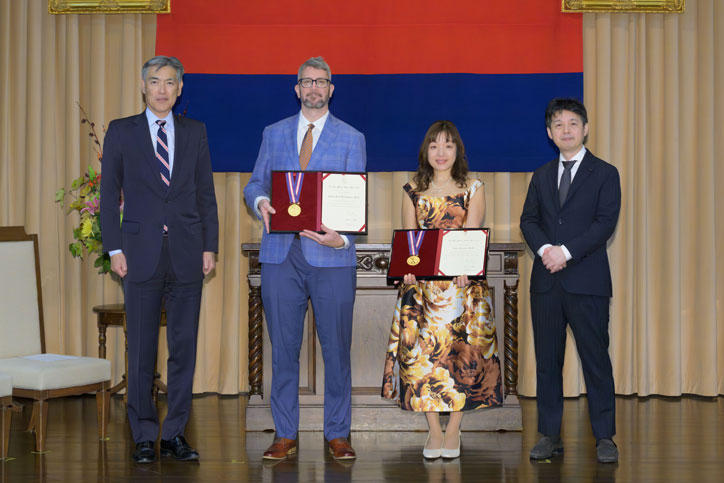
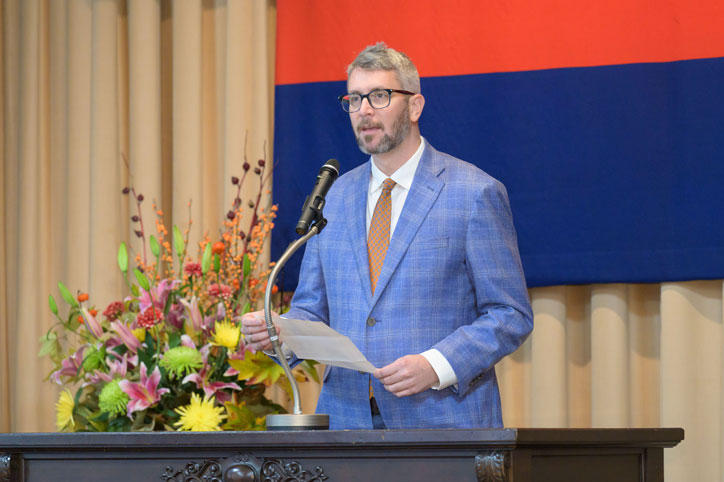
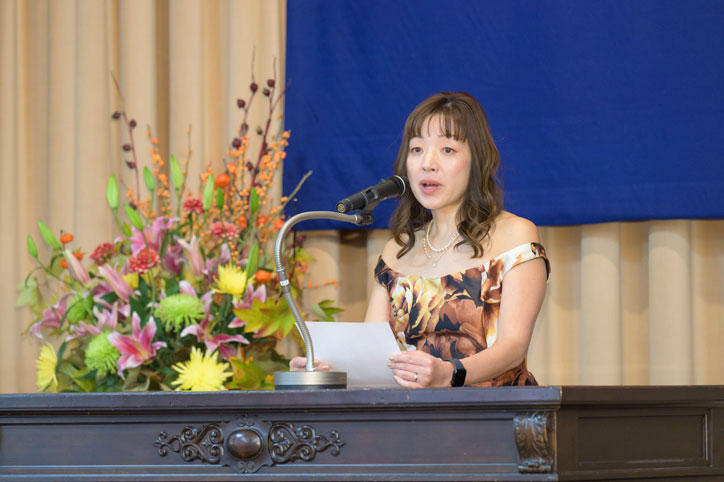
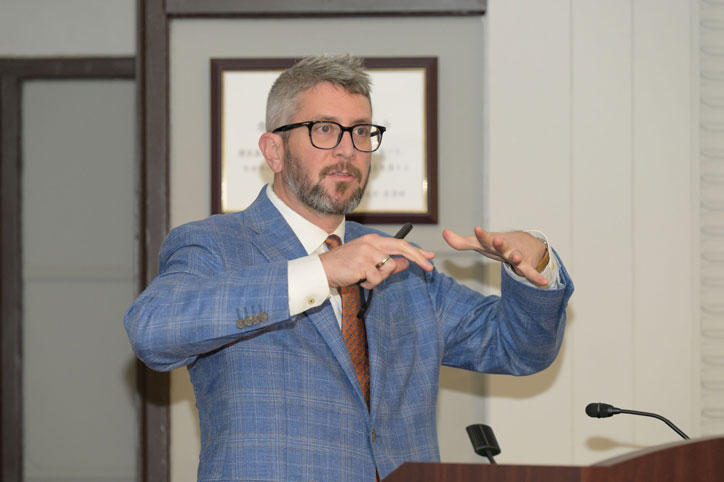
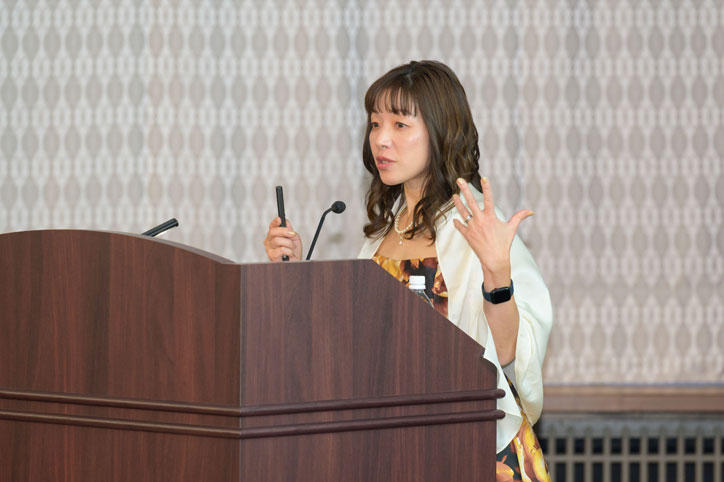
Footer start
Navigation start


